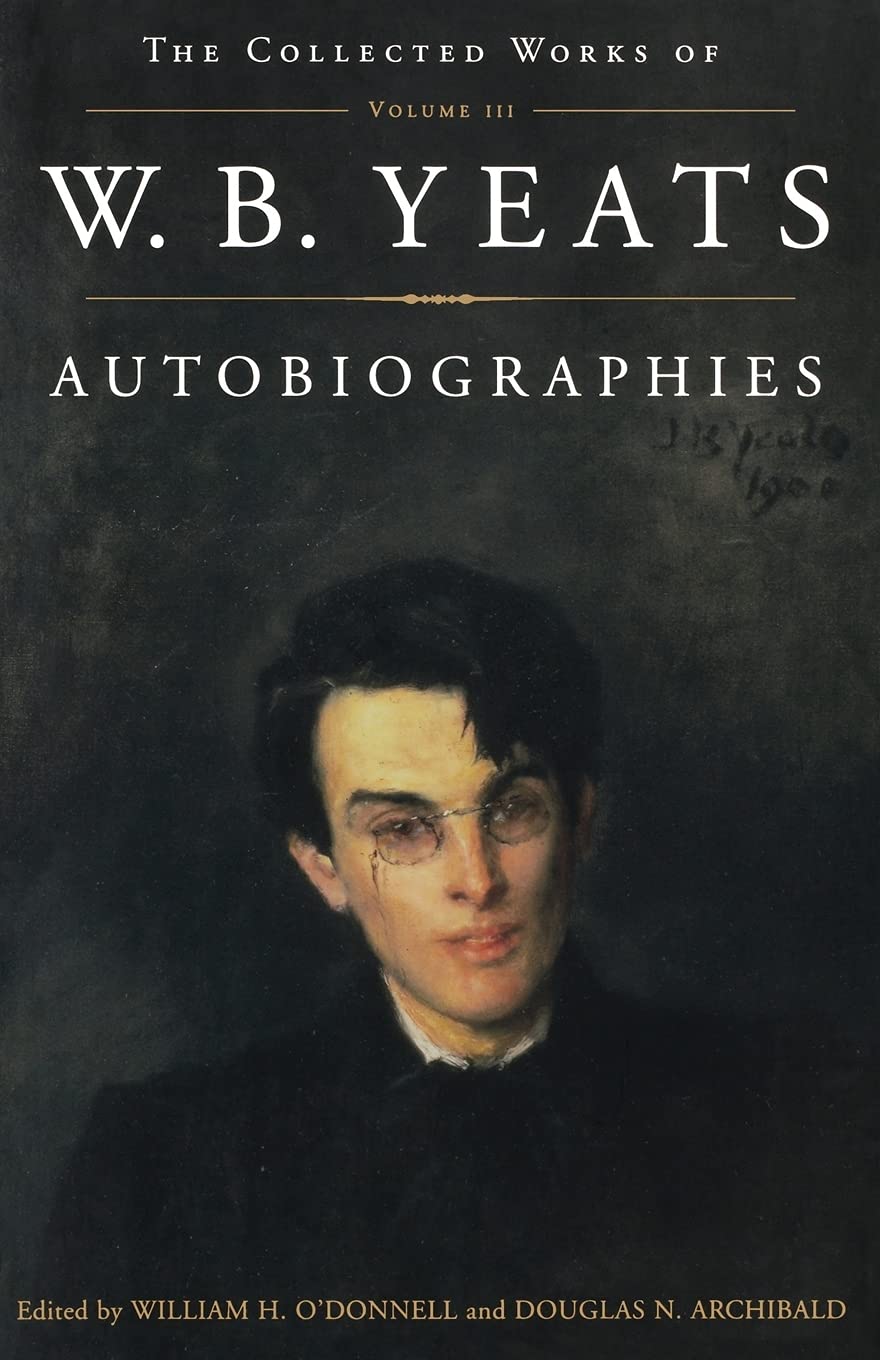Touchstone
Collected Works of W.B. Yeats Vol. III: Autobiographies (Original)
Couldn't load pickup availability
Title: Collected Works of W.B. Yeats Vol. III: Autobiographies (Original)
Author: Douglas Archibald
Biography: 1655276
ISBN: 9780684853383
Publisher: Touchstone
Published: 1999
Binding: Paperback
Language: English
Edition: Subsequent
Section: Biography & Autobiography | Literary Figures
Condition Note: Clean, unmarked copy with some edge wear. Good binding. Dust jacket included if issued with one. We ship in recyclable American-made mailers. 100% money-back guarantee on all orders.
Publisher Description: EDITOR'S PREFACE
In 1938, Mrs. Yeats told her husband, '"AE was the nearest to a saint you or I will ever meet. You are a better poet but no saint. I suppose one has to choose"' (L 838). It is a distinction Yeats seems to have already endorsed in these lines from 'The Choice', written in 1931:
The intellect of man is forced to choose
Perfection of the life, or of the work,
And if it take the second must refuse
A heavenly mansion, raging in the dark. (P 246)
But Yeats rarely makes simple choices, presenting us instead with a career of vacillations, of attempts -- always willful, sometimes heroic -- to have it both ways. No less than Keats, he thought that the poet leads a life of allegory and that his works are comments on it. Before comment, and as part of the process of perfection, comes transformation. He explained, in the 'First Principles' section of his 'Introduction' to his works, written in 1937:
A poet writes always of his personal life, in his finest work out of its tragedies, whatever it be, remorse, lost love, or mere loneliness; he never speaks directly as to someone at the breakfast table, there is always a phantasmagoria. Dante and Milton had mythologies, Shakespeare the characters of English history, or of traditional romance; even when the poet seems most himself, when he is Raleigh and gives potentates the lie, or Shelley 'a nerve o'er which do creep the else unfelt oppressions of mankind', or Byron when 'the soul wears out the breast as the sword wears out the sheath', he is never the bundle of accident and incoherence that sits down to breakfast; he has been re-born as an idea, something intende particularly interesting excerpts from earlier version of revised passages.
Explanatory notes are not used for simple, straightforward mentions of the name of a person, place, organization, or historical event, or of the title of a book, play, poem, or story. Instead, those names and titles are described with 1,500 augmented entries in the index. Those augmented entries provide a person's name, birth and death dates, nationality, and profession; for books or other texts, the augmented entries identify the author, genre, and date. The page references in the index will lead the reader to any other occurrences in the text or notes.
The eighteen notes written by Yeats are printed among the explanatory notes, flagged with the heading 'WBY'S NOTE'. If the note was added later or was revised or omitted in any printing, that is mentioned. Explanatory notes to Yeats's notes are marked by superscript letters and are printed immediately following his note.
In "Estrangement" and "The Death of Synge, " each of the ninety-six sections is headed with a brief statement of its dating in the manuscript and a cross-reference to the manuscript transcription in "Memoirs." For abbreviations of names and titles, see the List of Abbreviations, pages 33P36 below.
Background Notes on Writers, pages 531P539 below, provides a concise introduction to twenty writers who were important to Yeats but who receive only comparatively brief mention in "Autobiographies."
DA WHO
Copyright © 1999 by William H. O'Donnell and Douglas N. Archibald

